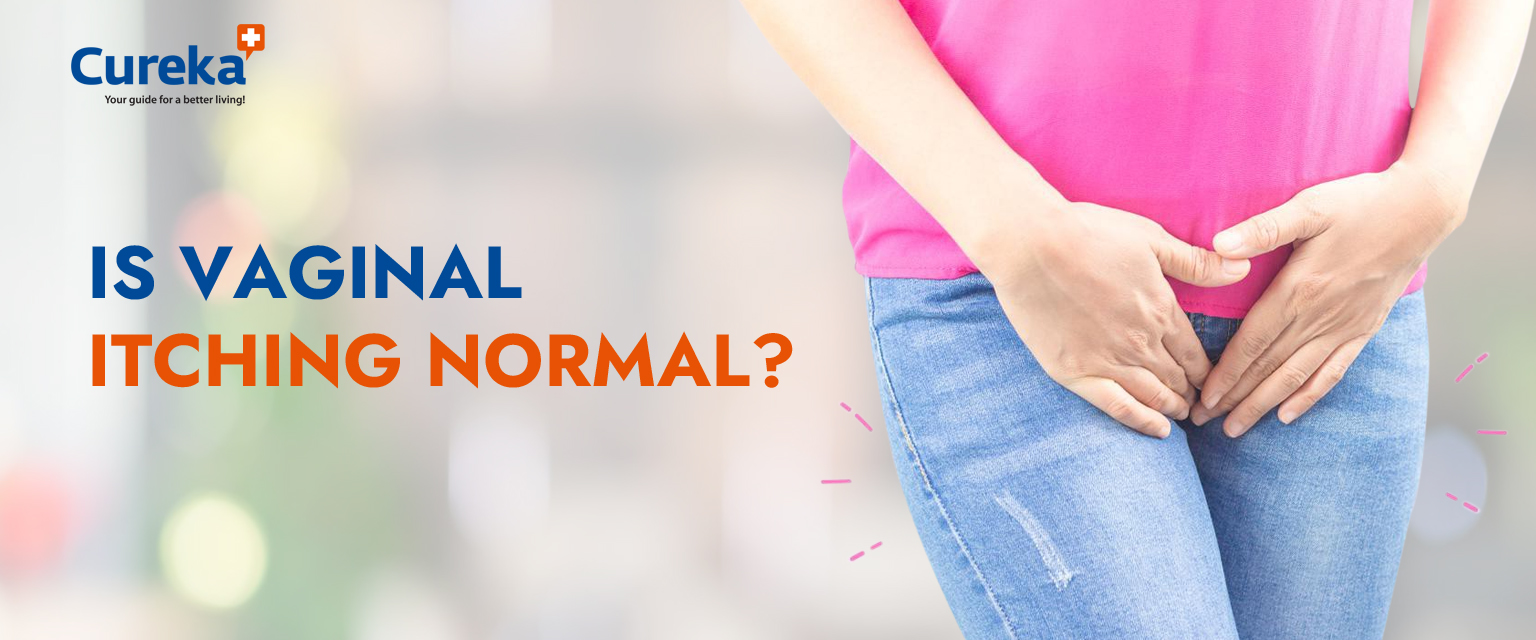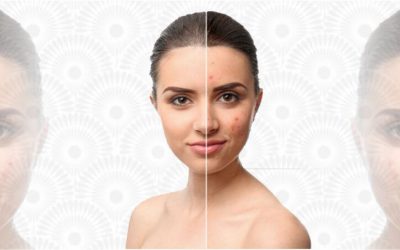Is Vaginal Itching Normal?
Have you ever experienced itching in private areas? Of course, yes because Vaginal itching is a frequent symptom associated with female genitalia and most prevalent in women. As I say it’s prevalent the causes of itching is also enormous which you could never imagine. As a Superwoman we face lot of changes based on reproductive cycle from puberty till menopause and handle various challenges in outlook, stamina and moods. Vaginal itch impacts quality of life in women, self-esteem and sexual function. This is quite a challenging symptom. In this blog let’s see what are the various causes and how to overcome it.
What is Vagina?
The vulva is not the vagina. Vagina is the specific name for the tubular canal. Vulva is the external female genitalia that contain clitoris, labia and vagina. Vulva surrounds the vagina.
As all know vagina is a part of the female reproductive system. The vagina is tubular opening that connects vulva and uterus. In the life cycle of woman vagina undergoes a lot of changes as per hormone during puberty, pregnancy, menopause.
Vagina as a Self-care Organ
Vagina is a self-protecting organ and has multiple functions. However, during reproductive years post puberty, the lactic acid producing bacteria predominate. During birth estrogen levels raises from maternal hormones and makes the vagina acidic. As women enter the premenopausal period and eventually menopause the estrogen levels are lower. Acidic pH means healthy vagina as it restricts colonization of harmful bacteria.
During menstruation vagina eliminates menstrual fluid from uterus. Not only that it performs as a immune defenser by maintaining acidic pH.
So itching down there is not a simple one.
Vulvar and Vaginal Care
When vulva gets irritated women may experience discomfort and leads to vaginitis in the form of yeast infections, bacterial vaginosis, Trichomoniasis, Chlamydia, Viral vaginitis or herpes, as it may change the microorganisms in the vagina. Even though these are microorganism you can protect them from harming if you take care of the vulva by avoiding triggers and improper hygiene. Vulvar care just means keeping the area dry and free from irritants. If not, you have to struggle with redness and inflammation.
Have you ever imagined how the pH of vagina changes? Contaminants often collect in the vulvar folds, and increased moisture, sweating, menses, and hormonal fluctuations influence vulvar microbial growth, pH imbalance and species balance, potentially resulting in odour and vulvovaginal infection. When microbes are minimal the Vulvar flora may affect the proliferation of exogenous pathogens that cause vaginal and urinary tract infections.
Vaginitis and Vulvitis
Now we know that when the acidic pH gets altered it leads to infestation of micro-organisms. Maintaining healthy vagina and vulva will prevent infection, itch and inflammation. But what if your internal body mechanism alters the vaginal flora? Yes this happens due to internal factors like age, hormonal imbalance and infections that fluctuates the composition of the vaginal microflora. Vulvitis, vaginitis is not contagious but if the reason is bacteria, yeast and fungal infections they are contagious.
Not only internal factors but also external factors. Don’t panic. External factors are easy to handle. The vulva is susceptible to dermatitis when the skin barrier function is altered due to moisture, friction and heat. But how do you know this? Abnormal vaginal discharge, itching, swelling, redness are early symptoms.
Let’s differentiate what is vulvitis and vaginitis. Vulvitis is the inflammation affecting your genitals, or vulva — the outer part of reproductive organ. Vaginitis is the inflammation that affects the vagina inside your body. Inflammation affecting both vulva and vagina is called vulvovaginitis and the factors are huge. Lets see the reasons for itching in detail now.
Vaginal Itch- Reasons
Menopause
When we speak about internal factors, we cannot miss out hormonal imbalance especially during and after menopause.
Menopause leads to lot of changes in women physically and mentally. Decrease of hormones may make your vagina dry or atrophic.
Vulvar skin disorders are also more prevalent after the menopause. Women at menopausal stage, who have surgically removed ovaries, breastfeeding mothers and certain medications may have lesser estrogen levels that cause atrophy. In breastfeeding mothers, it can be resolved when the hormone level increases once they stop nursing. In menopausal women low oestrogen level may lead to thinning of vaginal lining which causes itch, irritation.
Vulvovaginal Infections
Use of irritating intimate products like douche or soap to clean the vagina, non-acidic pH, microbial infestation may lead to vulvovaginal infections. So now we know the external triggers avoid it.
Bacterial vaginosis – Disturbance in bacterial microflora of vagina may lead to bacterial vaginosis. This not only means the growth of harmful bacteria but also overgrowth of normal vaginal bacteria. Characterized by fishy odour vaginal discharge and common in women of reproductive age , women with intrauterine devices , improper douche users. If you are under this category keep a check on your discharge.
Candidiasis or yeast infections – Pregnancy, uncontrolled diabetes, and recent antibiotic use are the triggers that lead to growth of candida by altering the normal micro flora of vagina. The symptoms include odorless, white, curdy discharge and local irritation, itchy and sore vagina and it is most common during the reproductive years. So watch your sugar levels.
Hormonal changes may also cause vaginal infections like vulvovaginal candidiasis. In fewer women with infection of Vulvo vaginal candidiasis Oestrogen causes the lining of the vagina to mature and to contain glycogen, a substrate on which C. albicans (pathogen that cause candidiasis) thrives. Symptoms often occur in the second half of the menstrual cycle when there is also more progesterone. Lack of oestrogen makes vulvovaginal candidiasis less common in younger and older postmenopausal women.
Trichomoniasis – protozoan infection in vagina leads to vaginal itching and smelly, thick ‘cottage cheese-like’ discharge known as trichomoniasis. Most commonly spread through intercourse and having safe sex practice may avoid trichomoniasis.
Non-infectious Vaginitis
Not only infections there are lot of allergens that cause itch and in medical terms simply call it non-infectious.
Allergic reaction or irritation from vaginal sprays, douches, perfumed soaps, feminine wipes, irritating and strong fabric conditioners and detergents are common triggers for non-infectious vaginitis. Gentle vulvar cleansing is desirable, and evidence suggests that it is an important aspect of female intimate hygiene and overall vulvovaginal health.
So how to care the genitals with care?
Since harsh soaps may irritate the vulvar skin and mucous membranes, feminine wash products are formulated specifically for the intimate area to ensure that they do not cause vulvar or vaginal irritation or sensitization. A properly formulated feminine product must have gentle cleansers, antimicrobial activity and support the vaginal microflora naturally. Choose wisely for better vaginal care.
Conclusion :
Itching is quiet challenging, isn’t it? As vaginal itching has multiple causes, diagnostic evaluation and treatment would be desirable, both to achieve optimal efficacy and to meet the diverse needs of women who suffer from this condition. Many substances can cause irritation of the vulva, including body fluids, feminine hygiene products or various topical medications, physical and thermal irritants like tight fitting clothes, wash cloths, sponges. We recommend speaking to a healthcare professional if you have concerns regarding your own reproductive health, like vaginitis but there are small things we can all do every day that also help broaden our comfort and help us stay itch free!














